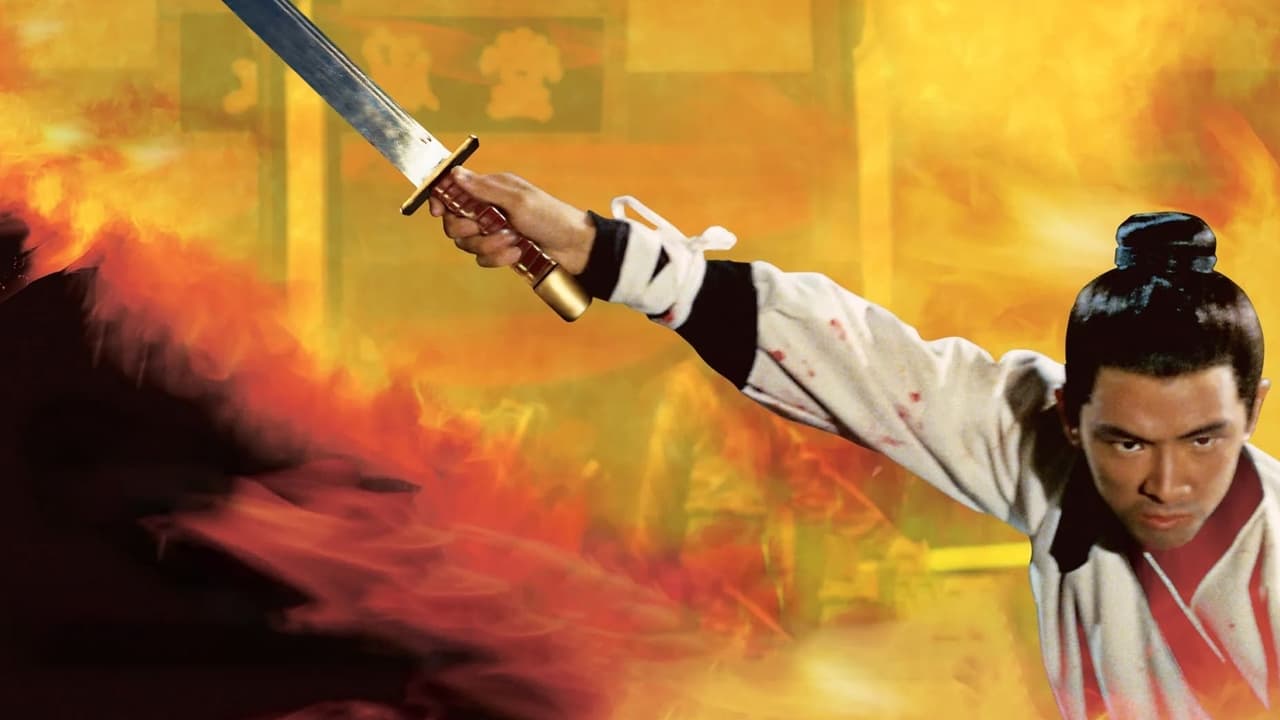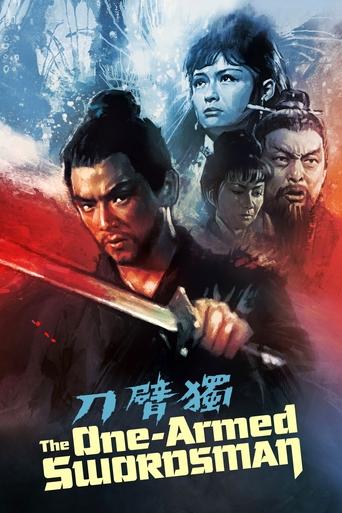

Such a frustrating disappointment
... View MoreGood concept, poorly executed.
... View MoreThe plot isn't so bad, but the pace of storytelling is too slow which makes people bored. Certain moments are so obvious and unnecessary for the main plot. I would've fast-forwarded those moments if it was an online streaming. The ending looks like implying a sequel, not sure if this movie will get one
... View MoreA film of deceptively outspoken contemporary relevance, this is cinema at its most alert, alarming and alive.
... View MoreWhile sick with the flu, lying in bed, I had the enormous privilege to experience the Shaw Brothers production, "The One-Armed Swordsman", the legendary Hong Kong success from heralded director Cheh Chang. It concerns a young disciple, Fang Kang(Yu Wang) whose skills as a martial artist are enhanced by his master swordsman, Qi(Chung-Hsin Huang). Qi trained him from childhood after Kang's father is killed defending his master against a foe's host of disciples. Qi's arch nemesis is Long-Armed Devil(Chih-Ching Yang), and the two have been at war for some time. Long-Armed Devil has developed a sword with a lock that can trap the long, heavy golden swords which are used by Qi's disciples. Pie-ri(Yin Tze Pan)is Qi's only daughter and she is responsible for cutting off Kang's right arm, rendering him a cripple. She was jealous of her father's affection for Kang, and bothered by his supposed arrogance. Lucky for Kang he falls into the boat of a country girl, Xioman(Chiao Chiao), and she gets her grandfather and cousin to assist in saving his life. Kang and Xioman attempt to make a life for themselves, but the one-armed swordsman's past life never seems to relinquish him from aiding his master. Qi's daughter is temporarily kidnapped by Long-Armed Devil's brother, Smiling Tiger(Ti Tang), so he has to rescue her. And, when Long-Armed Devil's disciples ambush Qi's men in separate situations, using the sword with the lock, Kang will have to help his master yet again. Thanks to a special martial arts book Xioman had, from her dead father, a warrior himself who died for his master, Kang was able to train himself using just his one hand..kudos to Yu for being able to successfully pull of swordfighting against adversaries using only the left hand, and to the director for lensing the choreography, without revealing his right arm. The director opts to shoot the fight sequences mostly hand-held, which provides for lively battles between opposition. The marvelous studio sets are well utilized and the story is well developed, giving good treatment to the relationship of Kang and Xioman. The film's story also has an indictment of martial arts and how being equipped with fighting skills, not to mention the concern of honorably defending your teacher, can produce a lifetime of suffering and death. Through Xioman and Kang, both orphaned because of their fathers' honor code to fight for their teachers, the film shows how there must be an alternative to this kind of lifestyle. "The One-Armed Swordsman" gave me all I could ask for in regards to swordplay, blood, and hacked limbs..a triumph. Really neat is how Kang is able to use his father's broken sword to outduel his enemies who have superior weaponry. The movie has colorful villains, whose lecherous qualities serve the plot well in regards to building the heroism of Qi's men, including Kang. Despite their futile efforts to proudly fight for their teacher, we see how Qi's disciples march straight into peril for Long-Armed Devil's men were simply better equipped for the final climactic showdown.
... View More"One-Armed Swordsman" is an early work of Chang Cheh, the practical godfather of kung fu cinema. Without wasting any time with describing the plot I'll dive into what I liked and didn't like.This one is chalk full of great themes: ascension to manhood, honour, revenge, jealousy, hatred, redemption. Fairly unique in this genre is the love story between Fang Gang and Hsiao Man, which is actually quite touching.I found it interesting, when the rival clan threatens Fang Gang's former teacher and school, how he has to choose between the martial way (protecting his teacher, seeking revenge and entering the cycle of violence again), and settling down in a comfortable life with Hsaio Man. The idea that the only thing that can save the school is Fang Gang's broken sword, that his father left him upon dying, was poetic.The plot has all the makings of a great martial arts film. Where the film falls down though, is in the badly choreographed sword fights and really cheap sets and bad lighting. The swordfights are often wooden and slow.I ask anyone who has raved about this film here, to look at the choreography critically... it does not come close to the best in the genre.Granted, the fact that it is an early work (1967) probably explains this, but still does not change it.
... View MorePlotwise this is relatively standard fare. Student suffers a personal defeat , goes into recovery and training mode, then redeems himself.My beef with this movie was the Qi/Chi sword style. The evil villain devises a special technique, complete with a custom sword to defeat the Qi sword style. And the Qi family is completely unable to defeat this new technique. They push forth like lemmings, each one dying in the same fashion as his predecessor. When their self preservation instinct raises a notion to perhaps team up and take advantage of their 20 - 3 numbers to defeat their enemies, the main villain chides them to keep fighting one on one. As self preservation once again takes a step back, they continue fighting and dying one at a time, until the timely arrival of our handicapable hero who uses his new style to quickly dispatch the villains.If our hero kept his arm, he no doubt would have died too, as the Qi sword style is apparently completely incapable of improvisation. This really killed the enjoyment of the movie for me, as by the time the 10th Qi student died IN EXACTLY THE SAME FASHION, I would have figured that someone would have tried something new. At no point did Bruce Lee's critique of the rigidity of Chinese martial arts ring more true.If this particular problem does not bother you as much as it did me, then this can be a quite enjoyable late 60s Shaw Brothers experience. But if seeing fight after fight resolve itself in exactly the same fashion begins to grate on you, then perhaps look elsewhere.
... View MoreI'm not a big expert on Hong Kong cinema, or Martial Arts movies, but I've seen my fair share of Kong Fu flicks, and this remarkable picture is definitely among the best. What it has going for it is first and foremost a great story about a one-handed swordsman who wants to quit the "Martial Arts business" but has one last debt of honor to repay. The film sets up its characters and plot in great detail, so we are involved from the outset. The villains are ferocious and the sword battles (this one has only sword battles, not actual Kong Fu) are great. It's a vicious, violent film, but also very tender. Acting is very good for this kind of picture. The heroes are heroic, the bad guys are sneering. Production design is also top-notch, great scenery and props, and be sure to watch it in "SHAWSCOPE" for its Widescreen glory.
... View More